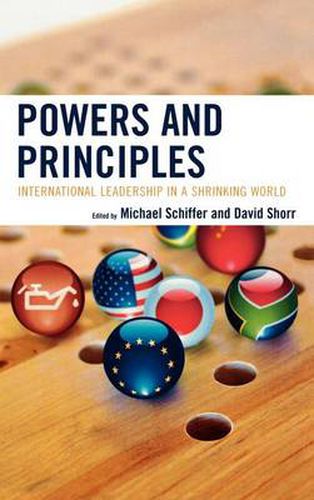Readings Newsletter
Become a Readings Member to make your shopping experience even easier.
Sign in or sign up for free!
You’re not far away from qualifying for FREE standard shipping within Australia
You’ve qualified for FREE standard shipping within Australia
The cart is loading…






What if the major global and regional powers of today’s world came into closer alignment to build a stronger international community and shared approaches to twenty-first century threats and challenges? The Stanley Foundation posed that question to thirty-three top foreign policy analysts in Powers and Principles: International Leadership in a Shrinking World. Contributing writers were asked to describe the paths that nine powerful nations, a regional union of twenty-seven states, and a multinational corporation could take as constructive stakeholders in a strengthened rules-based international order. Each chapter is an assessment of what is politically possible (and impossible)-with a description of the associated pressures and reference to the country’s geostrategic position, economy, society, history, and political system and culture. To provide a perspective from the inside and counterweight, each essay is accompanied by a critical reaction by a prominent analyst commentator from the given country. Powers and Principles is aimed at both reflective practitioners of policy and policy-relevant scholars.
$9.00 standard shipping within Australia
FREE standard shipping within Australia for orders over $100.00
Express & International shipping calculated at checkout
What if the major global and regional powers of today’s world came into closer alignment to build a stronger international community and shared approaches to twenty-first century threats and challenges? The Stanley Foundation posed that question to thirty-three top foreign policy analysts in Powers and Principles: International Leadership in a Shrinking World. Contributing writers were asked to describe the paths that nine powerful nations, a regional union of twenty-seven states, and a multinational corporation could take as constructive stakeholders in a strengthened rules-based international order. Each chapter is an assessment of what is politically possible (and impossible)-with a description of the associated pressures and reference to the country’s geostrategic position, economy, society, history, and political system and culture. To provide a perspective from the inside and counterweight, each essay is accompanied by a critical reaction by a prominent analyst commentator from the given country. Powers and Principles is aimed at both reflective practitioners of policy and policy-relevant scholars.